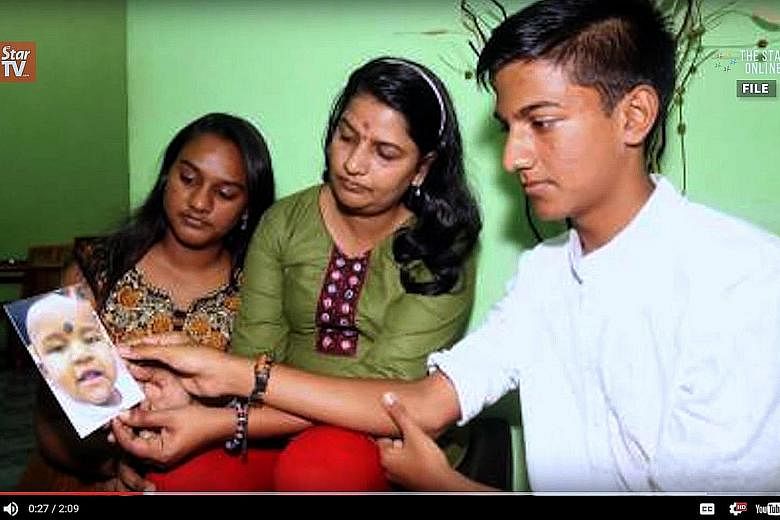KUALA LUMPUR • When Malaysian K. Pathmanathan converted to Islam in 2009 and left his wife Indira Gandhi, he also had their children converted without her knowledge. He then won sole custody of the children by going to the syariah court and claiming that they could not be raised by a non-Muslim.
Ms Indira, a Hindu, could not get help from Malaysia's civil courts because they cannot intervene in Islamic court decisions.
To stop a repeat of this case, which raised deep concern among Malaysia's non-Muslim minorities, the government yesterday tabled a Bill in Parliament to prevent the unilateral religious conversions of minors by one parent.
Once approved, the amendments to an existing family law would also give power to the civil courts to help non-Muslim parents resolve such matters, the Malaysiakini.com news site reported.
The Law Reform (Marriage and Divorce) (Amendment) 2016 was tabled by Minister in the Prime Minister's Department Azalina Othman for its first reading in the House, with the inclusion of a new Section 88A that explicitly states that "both parties" in a civil marriage must agree before the conversion of a minor to Islam can occur.
According to The Malay Mail Online news website, the new law, if passed, will provide for the child to remain in the religion of the parents at the time of marriage until the child is 18 years old, when he may choose his own religion.
Where the parties to the marriage are of different religions before one spouse converted to Islam, "a child of the marriage shall be at liberty to remain in the religion of either one of the prior religions of the parties before the conversion to Islam".
Another important inclusion is that the proposed amendments shall be applied retrospectively in cases pending in courts.
The conversion of minors to Islam by estranged non-Muslim couples has been a source of tension in Muslim-majority Malaysia.
The country is governed by a dual legal system: a civil court system with jurisdiction over general laws, and a syariah court system that governs Muslims and Islamic matters, such as marriage and inheritance, based on enactments passed by the state legislative assemblies.
Where there is conflict, the civil courts almost always defer to the syariah court in cases regarding Islamic matters.
When one parent in a civil marriage embraces Islam and later converts the children who are below 18 years of age, the rights of the converted parent are duly recognised by the Islamic enactments. The syariah court is likely to grant this parent custody of the children so that they will remain Muslim.
But women's groups suspect that some converts may be using the children's conversion as a strategy in custody disputes with their non-Muslim spouses.
The only legal option for a non-Muslim parent is to file for custody of the children and apply for the annulment of the conversion in the civil courts.
In Ms Indira's case, the kindergarten teacher has yet to see the end of her seven-year battle in the courts to overturn her children's conversion.
She is now appealing to the Federal Court against a Court of Appeal ruling last December which said that only the syariah court has jurisdiction to decide on the validity of a person's conversion. The Federal Court will resume hearing her appeal next month.
Ms Indira's eldest child, daughter Tevi Darsiny, and her son Karan Dinish are now adults and old enough to decide their own faiths. But a cloud still hangs over the saga.
When her former husband, now called Muhammad Riduan Abdullah, first left their home in March 2009, he took with him their youngest child, Prasana Diksa, now eight years old. Her whereabouts remain unknown.

